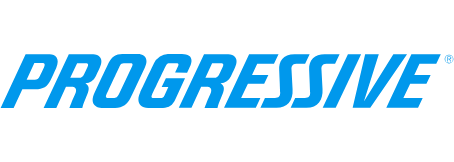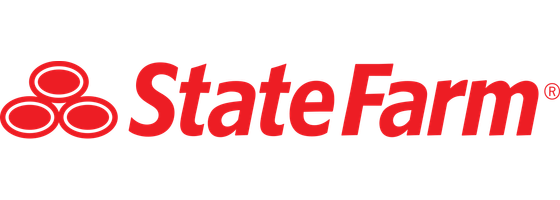- Above-average rating by J.D. Power
6 Best Small Business Insurance Companies in December 2024

Our evaluations and opinions are not influenced by our advertising relationships, but we may earn a commission from our partners’ links. This content is created by TIME Stamped, under TIME’s direction and produced in accordance with TIME’s editorial guidelines and overseen by TIME’s editorial staff. Learn more about it.
As a small business owner, you understand that success requires a lot of hard work and careful planning. Hopefully, you’re prepared for the unthinkable—a significant financial loss due to a fire, theft, accident, lawsuit, or other incident. That means having adequate small business insurance.
The good news? You have a lot of choices for small business insurance. The bad news? All those choices can be tough to sort through. (You have a business to run, after all). Check out our review of the leading U.S. small business insurers.
One of the industry’s best-known brands, Allstate is relied on by people across the country for personal and business insurance. The company is rated A+ by AM Best and ranked fifth out of 13 companies (well above the national average) in J.D. Power’s most recent study of business insurance.
Allstate offers business policies, including BOP, business interruption, EPLI, equipment breakdown, general liability, and property. You can get a quote for all of these by phone or through a local agent. Commercial auto is also available and can be quoted online, by phone, or through an agent. The company offers add-on coverages for outdoor signage, data theft, employee dishonesty, home-based businesses, inland marine, and cyber attacks.
Another well-known insurance brand, Nationwide Mutual Insurance Company, was ranked first among 13 companies in the 2023 J.D. Power U.S. Small Commercial Insurance Study.
One reason for Nationwide’s good customer service rating is that it helps business owners manage insurance costs. This includes providing access to risk management resources, including its loss control team, which reviews a customer’s operations to help minimize insurance risk.
On the coverage side, Nationwide offers auto, BOP, builder’s risk, business Income, crime, cyber, E&O, EPLI, equipment breakdown, general liability, inland marine, property, and workers’ compensation. The company offers quotes online, by phone, or through an agent.
NEXT Insurance is a newcomer to the small business insurance market, having been established in 2016. But don’t let the company’s shorter history deter you. NEXT reached 500,000 active customers in 2023. It also received significant financial backing from Munich Re, one of the world’s largest multinational insurance companies.
NEXT is also known as an “insuretech,” a company focused on using technology to improve its products and the customer experience. So you can expect the company to be easy to work with. For example, you can download a certificate of insurance through the company’s app rather than calling a company representative to have a copy sent to you.
The company offers online and phone quotes for auto, BOP, cyber, general liability, liquor liability, product liability, professional liability, property, tools and equipment, and workers’ compensation. NEXT also provides coverage packages customized for various small business types such as contractors, retail, fitness providers, and even Amazon sellers.
NEXT Insurance was not included in the J.D. Power 2023 Small Commercial Insurance Study.
The company has an A- rating from AM Best.
Progressive is probably best known for its personal auto insurance coverage. But the company also offers a broad slate of business insurance, including BOP, commercial auto, EPLI, employee health, employee pet, excess and surplus lines, general liability, inland marine, liquor liability, professional liability, property, rideshare, and workers’ compensation.
The company claims to be the No. 1 commercial auto insurer in the U.S., with more than 1.9 million insured vehicles. Its policy can cover several vehicle types, from passenger autos used for businesses to contractor light trucks to dump trucks and tractor-trailers. Progressive also offers Snapshot ProView, a fleet management program that offers insurance savings in exchange for sharing driving data through a plug-in device or a mobile app.
Progressive offers business insurance quotes online, by phone, or through its network of local, independent agents. You can file a claim online or by phone.
Progressive has an A+ rating from AM Best. It was not included in the J.D. Power 2023 Small Commercial Insurance Study.
State Farm hardly needs an introduction. It’s the largest property and casualty insurance company in the U.S. and globally. It has an A++ rating from AM Best, which is the highest possible rating for financial stability. And its business insurance is highly regarded. The company placed second in the 2023 edition of the J.D. Power U.S. Small Commercial Insurance Study after placing first in 2022.
State Farm offers BOP, commercial auto, E&O, EPLI, general liability, group life, key person life, not-for-profit insurance, and workers’ compensation. The company also offers helpful features, including access to a toolkit to help businesses plan for disasters and emergencies.
Is there a knock against State Farm? It’s not as easy to use as other providers. Quotes and policy sales are through its local agents only.
| Best for | Coverages | J.D. Power | AM Best | |
|---|---|---|---|---|
Home-based businesses | Auto, BOP, Business Interruption, EPLI, Equipment Breakdown, General Liability, Professional Liability, Data Compromise, Property | 5th (860/1000) | A+ | |
Farmers | Construction businesses | Auto, BOP, Builder’s Risk, Crime, Cyber, E&O, EPLI, General Liability, Property, Workers’ Compensation | 4th (864/1000) | A |
Nationwide | Customer satisfaction | Auto, BOP, Builder’s Risk, Business Income, Crime, Cyber, E&O, EPLI, Equipment Breakdown, General Liability, Inland Marine, Property, Workers’ Compensation | 1st (883/1000) | A |
Ease of use | Auto, BOP, Builder’s Risk, Business Income, Crime, Cyber, E&O, EPLI, Equipment Breakdown, General Liability, Inland Marine, Liquor Liability, Product Liability, Professional Liability, Property, Tools and Equipment, Workers’ Compensation | Not rated | A- | |
Progressive | Commercial auto | Auto, BOP, Cyber, E&O, EPLI, Employee Health, Employee Pet, Equipment Breakdown, Excess and Surplus Lines, General Liability, Inland Marine, Liquor Liability, Product Liability, Professional Liability, Property, Rideshare, Tools and Equipment, Workers’ Compensation | Not rated | A+ |
State Farm | Financial stability and reputation | Auto, BOP, E&O, Employee Life, EPLI, General Liability, Inland Marine, Key Person Life, Not-for-Profit Insurance, Workers’ Compensation | 2nd (877/1000) | A++ |
We gathered information for several leading U.S. small business insurers, relying solely on company websites for information about coverage and service options. Some companies AM Best information came from company websites; others came directly from AM Best. We also looked at the J.D. Power 2023 U.S. Small Commercial Insurance Study.
Our “Best of” designations are based on standout features offered by each company.
This information is provided for informational purposes only. We try to be accurate, but please verify all details before purchasing a policy.
Small business insurance offers financial protection to smaller enterprises, which are independently owned, have few employees, or produce lower annual revenue than large firms.
The following three types of coverage are common:
Coverage for these scenarios can be packaged into a business owner’s policy (BOP).
Beyond these basics, coverage needs vary dramatically from one business to the next. A builder with 12 employees, five vans, a dump truck, and thousands of dollars worth of tools likely has different insurance needs than a florist with no employees in a downtown boutique. For this reason and others, it’s a good idea for business owners to consult an insurance agent when buying coverage.
Here’s an overview of several common types of small business insurance.
| Coverage type | Description | Average monthly cost* |
|---|---|---|
Commercial property | Reimbursement if property is stolen, vandalized, or destroyed by an incident such as fire or severe weather | $60-70 |
General liability | Covers expenses if the business is held liable for injury or property damage to a third party | $40-55 |
Business interruption | Reimbursement if the business cannot operate due to a covered incident such as fire or theft | $40-130 |
BOP | Combines commercial property, general liability, and business interruption coverage into a single policy | $40-100 |
Professional liability/E&O | Pays expenses if a service provider is held responsible and sued for performing unsatisfactory work | $50-60 |
Workers’ compensation | Pays medical and related expenses when workers are injured or become ill while on the job | $45-70 |
Cyber | Pays expenses related to recovery of data lost during a cyber attack | $140-150 |
Commercial auto | Auto policy for business owners with cars and trucks | $150 |
*Source: Insurance Business America
Requirements for business insurance vary: Many state and municipal laws require businesses to have liability, workers’ compensation (if they have employees), and commercial auto coverage (if they use vehicles).
Beyond that, small businesses should always consider general liability insurance, property insurance, and business interruption coverage. These can be packaged as a BOP policy, which combines commercial property, general liability, and business interruption coverage into a single policy—offering ease and (usually) savings.
Remember that, regardless of requirements, operating without insurance puts a business at significant risk. Incidents such as fire, theft, or lawsuits could be financially ruinous.
The U.S. Small Business Administration recommends business owners follow four steps when buying insurance:
Small business insurance helps limit financial risk for a small business. It protects against losses from fire, theft, storm damage, and incidents such as lawsuits. And because there are numerous types of small business coverage available, a business owner can customize a policy to fit their specific needs and budget.
The cost of insurance for a small business depends on many factors, from the type and size of the business to the choice of insurance company and coverages needed. A recent study by Insurance Business America stated that small business insurance costs range from $240 to $1,500 per year.
There’s really no rule of thumb stating that a business should spend a certain percentage of revenue on insurance. However, one insurer does note that small businesses can expect to pay about 1% to 5% of annual revenue for coverage. Others estimate it at 10% to 30% of gross sales.
Your insurance needs will vary depending on your business type, location, and other factors. Most states require businesses with employees to have worker’s compensation coverage. Businesses that use vehicles will need commercial auto coverage. Local laws may require a business to have other types of coverage. An insurance agent can help you understand and purchase the insurance you need to get a small business started.
The information presented here is created by TIME Stamped and overseen by TIME editorial staff. To learn more, see our About Us page.








